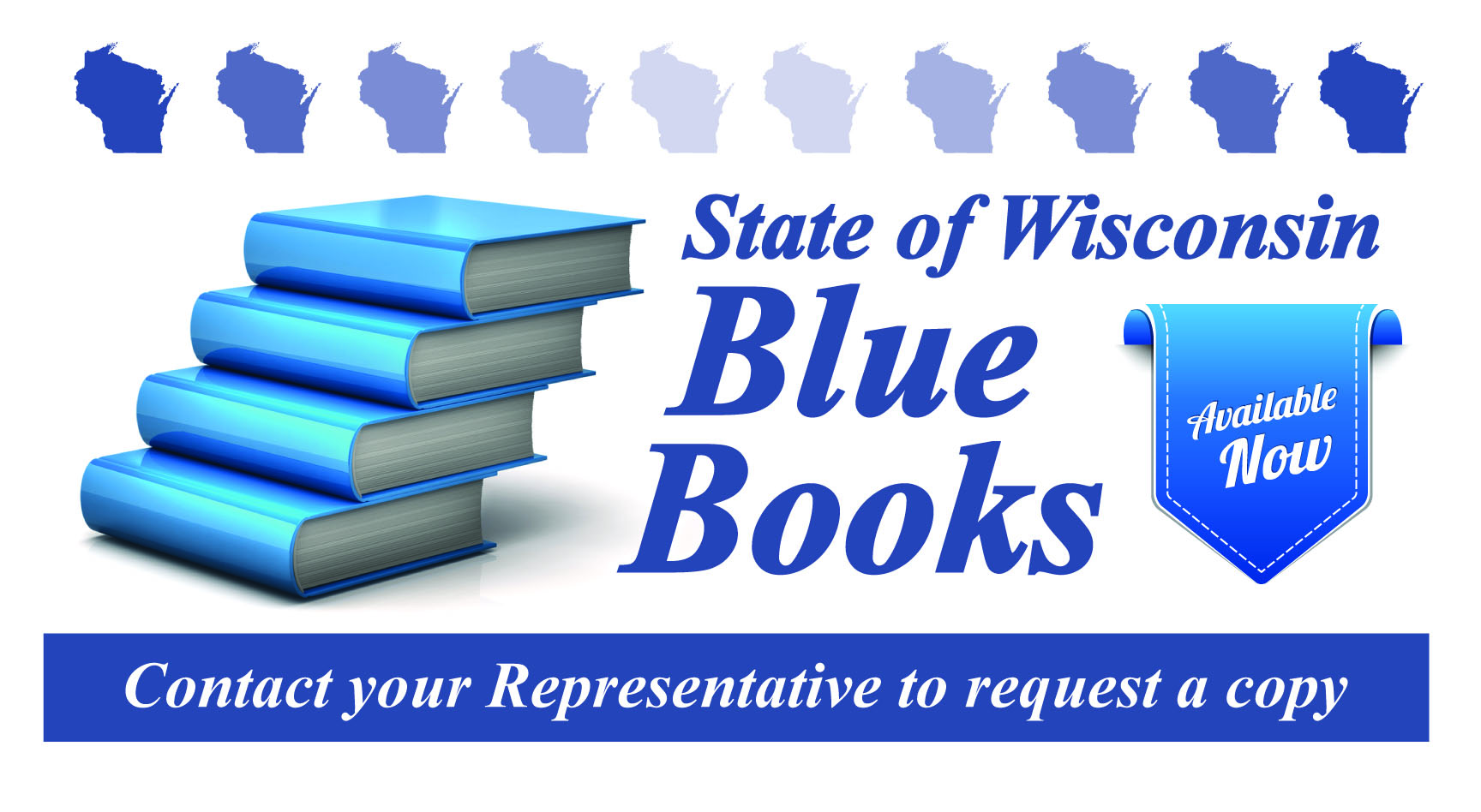
November 7, 2017
|
Electric Vehicle Freedom
Act |
|
Last week, Senator Chris Kapenga (R-Delafield) and I, in a press conference surrounded by more than sixty Wisconsin-based Tesla owners, introduced the "Electric Vehicle Freedom Act. In addition to the aforementioned press conference, lawmakers had the opportunity to test-drive various Tesla vehicles. This one-line bill, quite simply, allows manufacturers of solely electric-powered automobiles to sell directly to consumers in Wisconsin. Whether consumers choose a traditional gasoline-powered automobile or a vehicle that operates on electricity, they should have the opportunity to do so, free from government interference. By amending Wisconsin's deal franchise statute--which was written more than four decades ago and has never been rewritten--the legislature can make clear that electric vehicle manufacturers like Tesla may sell their products directly to Wisconsin consumers. Having the ability to purchase products of your choosing, devoid of government intrusion, is the essence of capitalism. In addition to consumer choice, this bill is about creating high-paying jobs and promoting American-made products. I very much believe in the 'America's First' principle. This legislation puts American and Wisconsin consumers first. I am excited to be putting forward legislation that will provide consumers with more choice and foster greater competition in the automobile market. There is a strong demand for these vehicles and this bill will give consumers the ability to purchase their automobile of choice in Wisconsin without driving across state lines. Wisconsin could benefit from Tesla's plans to expand its locations and charging stations throughout the United States. Tesla is already planning to double the number of charging stations worldwide and plans to increase its retail, delivery, and service locations by thirty percent in 2017. Additionally, the influx of hybrid technology in the automobile sector will result in the creation of more high-paying jobs for Wisconsin taxpayers. Tesla is the first successful American automotive start-up in the United States in more than fifty years. Furthermore, Tesla manufacturers and assembles all of its vehicles in the United States. Yes, Tesla did receive a loan of $451.8 million and paid it back, in full, nine years early with an additional $25 million in interest. It is true that Tesla owners receive a $7,500 federal tax credit at the time of purchase, but this program will be ending as Tesla reaches the two-hundred-thousand threshold in cars sold. This legislation is a win-win for all Wisconsinites, as it emboldens consumer choice, grows our economy, and reduces the nation's carbon footprint by making emissions-free vehicles more readily available.
Tesla owners from across Wisconsin participating in a press conference unveiling the "Electric Vehicle Freedom Act."
My colleagues and I unveiling the "Electric Vehicle Freedom Act."
Senator Chris Kapenga and I in front of the Wisconsin State Capitol Assembly floor session Assembly Bill 450: Last week, the Wisconsin State Assembly passed a number of legislative initiatives, on a multitude of issues, including Assembly Bill 450 that I coauthored with Senator Duey Stroebel. AB 450, authorizes an individual who holds a Class "B" fermented malt beverages or Class "B" intoxicating liquor (wine and distilled spirits) license or permit to also sell beer or liquor respectively, at specific locations within the Ozaukee County fairgrounds, if both of the following criteria apply: the licensee's or permitee's premises are located in Ozaukee County; and the Ozaukee County Board of Supervisors adopts a resolution approve the licensee or permitee. This proposal is merely a statutory fix to codify the current procedure at the Ozaukee County fairgrounds. Assembly Bill 450 was approved unanimously by both houses of the legislature, via voice vote. Assembly Bill 128: Assembly Bill 128, authored by Representative Andre Jacque (R-De Pere), relating to: prohibiting the Group Insurance Board from contracting or providing for abortion services, was approved by the Assembly. Under current law, Group Insurance Board offers health insurance coverage to eligible employees under the Wisconsin Retirement System, which includes all state employees and state attuitants and may include local government employees if they participate in a GIB health insurance plan. This plan currently pays for elective abortion services for public employees for any reason, at any stage of pregnancy. Assembly Bill 128 withdraws public funding for abortions and aligns Wisconsin law with the federal government, which does not cover abortions for federal employees. By prohibiting GIB from covering abortion services, we align the state not only with federal law, but also other state government programs. Mining for America Act Last week, the legislature also approved Assembly Bill 499, the "Mining for America Act." This bill does not create any environmental exemptions and maintains all current local approval processes. What is more, AB 499 does not eliminate wetland protections, as detractors of this proposal contended. Rather, it removes outdated administrative code, penned decades ago. Subsequently, it is imperative to denote that no wetland protections are being removed or refashioned. This legislation contains more stringent regulations than the outmoded administrative codes eradicated by this proposal. Assembly Bill 499 also requires stronger financial guarantees from mining companies to ensure the land is reclaimed and repurposed, while still meeting all current environmental standards. Homeowners' Bill of Rights I was pleased to cosponsor the Homeowners' Bill of Rights, authored by Representative Adam Jarchow (R-Balsam Lake), that was approved by the legislature, this week. As someone who has devoted my career in the legislature to protecting the rights of Wisconsin property owners. This legislation would guarantee the right of property owners to develop and sell all substandard lots that were legal upon creation or purchase. Furthermore, AB 479 establishes a statutory framework for conditional use permits, which I submit, will add additional certainty to property owners. I would like to thank the League of Wisconsin Municipalities, Wisconsin Towns Association, and the Wisconsin Counties Association for working the bill's principal authors to reach a compromise on the language regarding conditional use permits. It is imperative that the voices of Wisconsin residents are heard and decisions are based on factual evidence. The impetus behind Assembly Bill 479, quite simply, was the United States Supreme Court's short-sighted ruling in Murr v. Wisconsin (2017). According to Moore (2017), "In that case, when considering whether a regulation is a government taking, the justices ruled five-to-three that adjacent substandard parcels of land can be legally considered a single piece of property by a municipality, foreclosing separate sales without any compensation to the owner" (p. 1). Assembly Bill 479 will give back the rights property owners have been wrongly denied under lot-merger ordinances in more than forty Wisconsin counties. Local governments would be prohibited, under this proposal, from requiring adjacent, substandard lots in common ownership to be merged. Wisconsin families, as a result, would be able to help do what is best for their family. Additionally, this bill establishes a statutory framework for conditional use permits; allows property owners to receive compensation when a government-imposed restriction reduces the fair-market value of a parcel of private property by more than fifty percent, rather than when it denies all or substantially all of the use of private property; allows property owners to specify the parcel of their land that is subject to action against the condemner, rather than consider the owner's parcel as a whole--as was decided by the United States Supreme Court in Murr v. Wisconsin (2017)--and guarantees property owners the right to display the American flag. 2017-2018 Wisconsin State Blue Book now available Everyone's favorite almanac of state government, the Wisconsin State Blue Book, is now available. Published biennially since 1853, the Wisconsin State Blue Book is the oldest publication in Wisconsin. Initially, the Wisconsin State Blue Book served as a manual for the State Assembly, a pocket-size volume of less than 100 pages, and designed for legislators to have information about state government at their fingertips. According to the Wisconsin Legislative Reference Bureau, the principal authors of the venerable publication, "Over the decades, the Blue Book evolved in size, scope, and purpose. The Blue Book's many iterations were caused by the increased availability of information about state government and the public. By 2015, the Blue Book exceeded 1,000 pages and was laden with dense statistical information that history buffs and political junkies would find engrossing; everyday citizens, conversely, would find this information uninteresting. The newly-revised State of Wisconsin Blue Book is designed to provide everyday citizens with enthralling content about Wisconsin history and government. Recognizing that the Blue Book was becoming too lengthy and dense, the Wisconsin Legislative Reference Bureau undertook a Herculean effort: revamping this esteemed repository of information about our state and its history. The 2017-2018 Wisconsin State Blue Book is intended to serve as an introduction to state and local government, not the primary source for information regarding these entities. More substantive and timely information about state government can be accessed through the Internet than could ever be accessed by a team of researchers tasked with penning a book. Recognizing this, the 2017-2018 Blue Book contains biographies of all legislators, descriptions of executive and judicial agencies, and statistics on Wisconsin government and elections. It does not, however, reproduce information that is archaic, or can be more easily obtained and accurately elsewhere. If you are interested in obtaining a copy of the 2017-2018 Wisconsin State Blue Book, please contact my office with your name and address. My staff and I will make it a priority to ensure that your copy arrives in a timely manner.
Revised Deer Hunting Tag Rules The Wisconsin Department of Natural Resources, in preparation for the forthcoming gun-deer hunting season, has revised its tag requirements. Gun-deer hunting this year runs from November 18-26 and is immediately followed by muzzleloader season, which runs from November 27-December 6. The newly revised tag requirements include:
For more additional details on these new Department of Natural Resources rules, please visit the Deer Tags 2017 FAQ.
|
|
Have a great week,
Stay up to date One of the best ways to stay up to date with what is happening in Madison is to sign up for the legislature's notification tracking service. This service affords you with the opportunity to track legislative activities in Madison. Upon creation of a free account, you can sign up to receive notifications about specific bills or committees as well as legislative activity pertaining to a subject area (i.e. real estate, education, health). You can sign up for this service at any time. You can also follow me on
Facebook and
Twitter to see what
I have been doing in Madison and around the 60th Assembly
District.
Please recommend the page to your friends and family members.
|
If you would like to be removed from future mailings, email me to unsubscribe.
State Capitol Room 309 North-PO Box 8952, Madison, WI 53708
(608) 267-2369
Email: Rep.Rob.Brooks@legis.Wisconsin.gov



